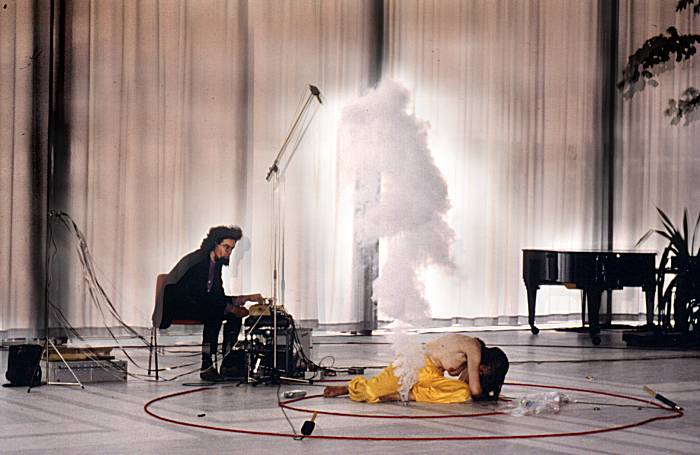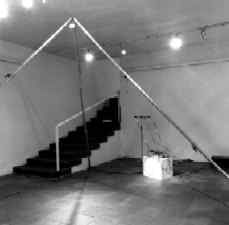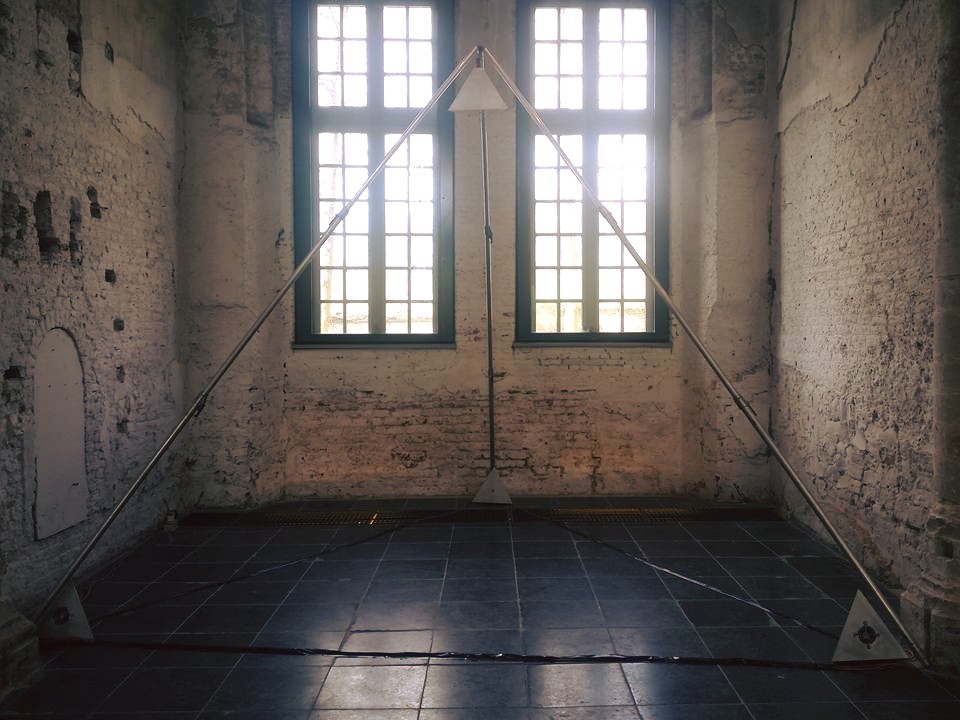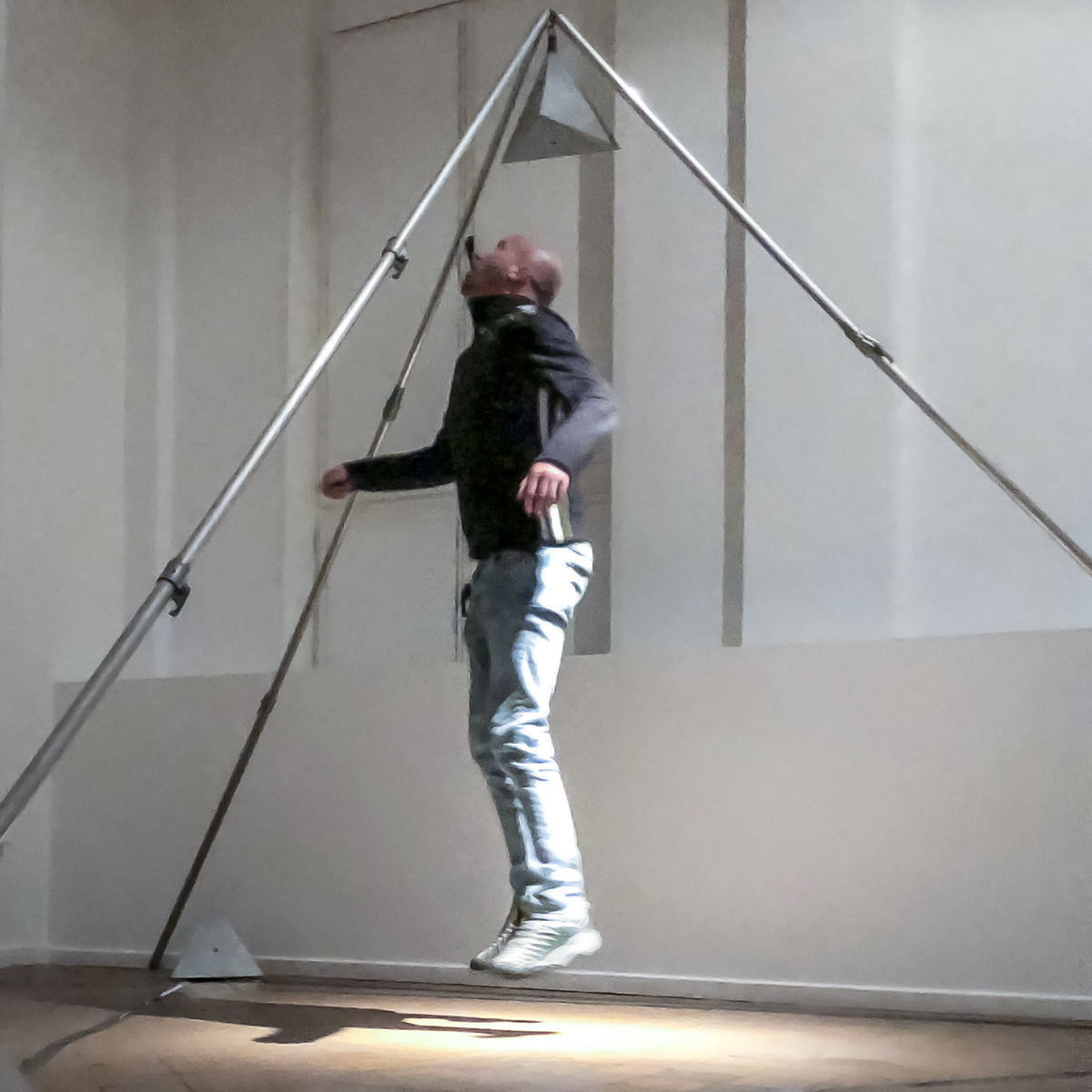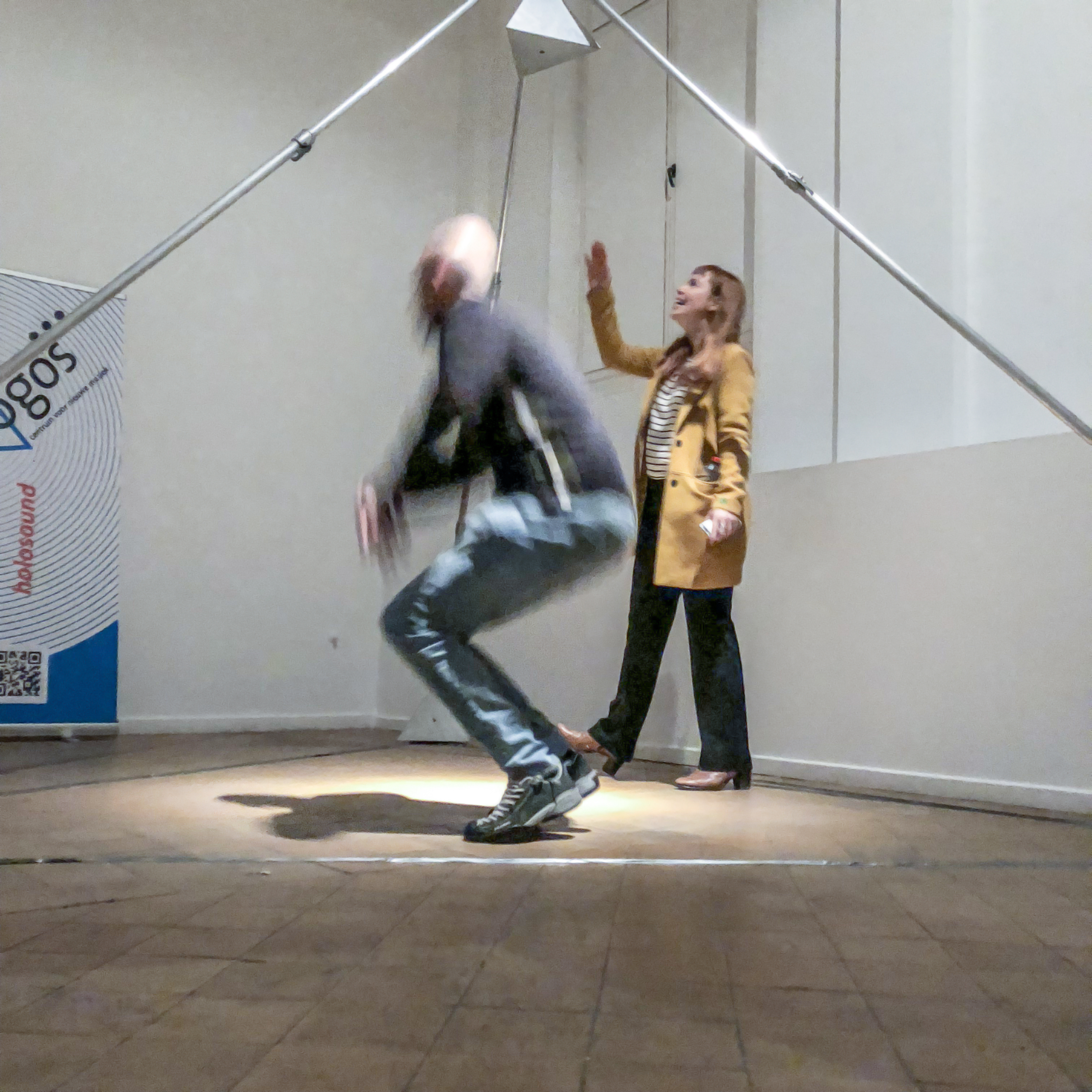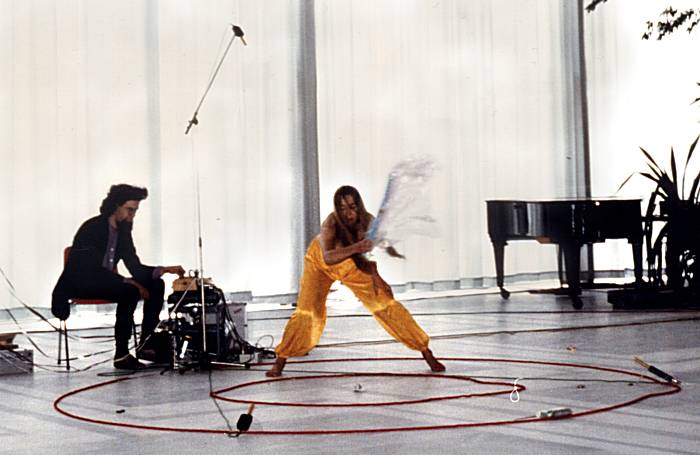Holosound creates, translate every single movement into sound. Holosound
also attemps to be a possible realisation of a dynamic multi-dimensional
oscillating system, real-time controllable by means of direct and aesthetically
relevant body-movement of a performer. Movement isn’t only visible,
but audible as well.
A frequency modulated ultrasound-emitter is placed in a space and directed
towards three ultrasound-receivers, placed on the four corners of an
imaginary tetrahedron (all angles 60 degrees). The space becomes bewitched
and is delimited by two red magic circles.
As soon as the performer moves in the space circumscribed by the outer
sphere around the tetrahedron, each of the three receivers will detect
a different differential signal within the audible range: the movement
causes a Doppler-shift of the original ultrasoundwave ,and due to relatively
slow body-movement, a slight pitch-shift is produced. This differential
shift is within audible range.
All of the sounds are generated exclusively by the movement of the
performer inside the magic circles. She plays a mysterious invisible
instrument, she plays the space itself.
The second performer is sitting motionless, outside the magic spheres,
operating electronics that mix and control the three signals. The resulting
sum is then used as a frequency modulation source for the ultrasound-emitter.
This part of the equipment constitutes a first multi-dimensional oscillating
system entirely controlled in a relevant way by movement. A sound-hologram
is created, and using exclusively musically relevant parameters, as
opposed to systems that are basically proximity devices, mostly controlled
by light.
A second three-dimensional and quadrophonic oscillating system is used
in the second part of the Holosound piece. The three signals from the
ultrasound-receivers are used as inputs to special magnetic transducers
that force a given set of changeable objects (e.g. springs, razorblades,
steeltape, plastics... at the end, even a sandwich would do the job...)
to vibrate. At another spot on these objects, a pressure-transducer
(we use piezoelectric discs) is attached, and the signal generated here
is amplified and converted to a digital format where it can be treated
in a computer-controlled modulo-N divider/multiplier. After this programmed
process the signal is fed back into the vibration-transducer together
with the original signal derived from the ultrasound-receivers. Thus
four three-dimensional and controllable oscillating systems are created
that are only triggered by the original movement.
Sinisterly the centre of the inner circle attracts the performer and
irrevocably the inner witch-circle is penetrated. The audience gets
to hear a scored and ever changing mix of sounds originating from the
complex modes of vibration in the whole system.
Diabolic metalic sounds resonate fiercely and punish the intruder.
The performer is captured by the tremendous sounds provoced by her own
moves and is born again as a Phoenixbird.
[Godfried-Willem RAES]
